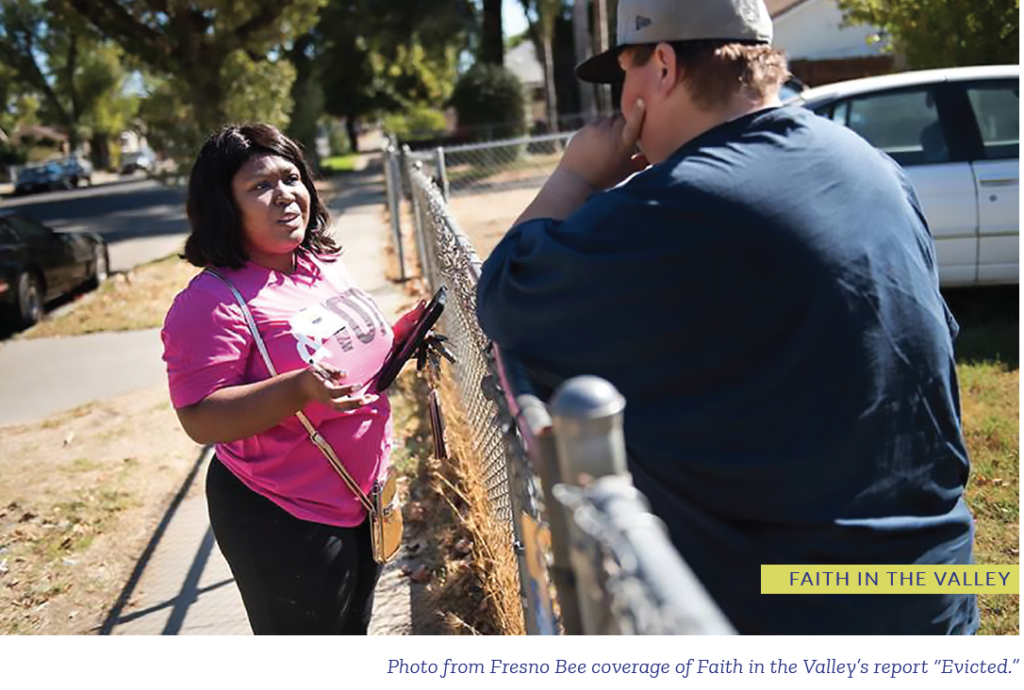Central Valley Impact Brief: Building a Powerful Regional Housing Coalition

In the first convening, I dreamed about so many projects and in the four years since those dreams have come to life. We didn’t have a regional housing team and now have a team and are working across five counties, we have a coordinated approach, and coalition. We have a north star vision and are developing deep knowledge to create sustainable work. We have an internal regional housing team to know what is going on across all counties and learning from each other. In 2018 we were only doing housing organizing in Fresno. Because of this fund we have been able to expand how we serve the northern valley and expand to new areas.
CENTRAL VALLEY COMMUNITY ADVISOR

75% of Community Advisors in the Central Valley state that they strengthened relationships with public officials, are recognized as a trusted organization by other philanthropic institutions and are shifting the narrative about housing justice and equitable development.
The [F4ICA funding] has helped build more internal capacity to take on a lot more housing issues. It has also helped us connect with partners and work together to move policies forward at the local and state level. One example is AB 1487, we were able to work together to advocate for a 25% rural set aside for the eviction prevention fund.
CENTRAL VALLEY COMMUNITY ADVISOR